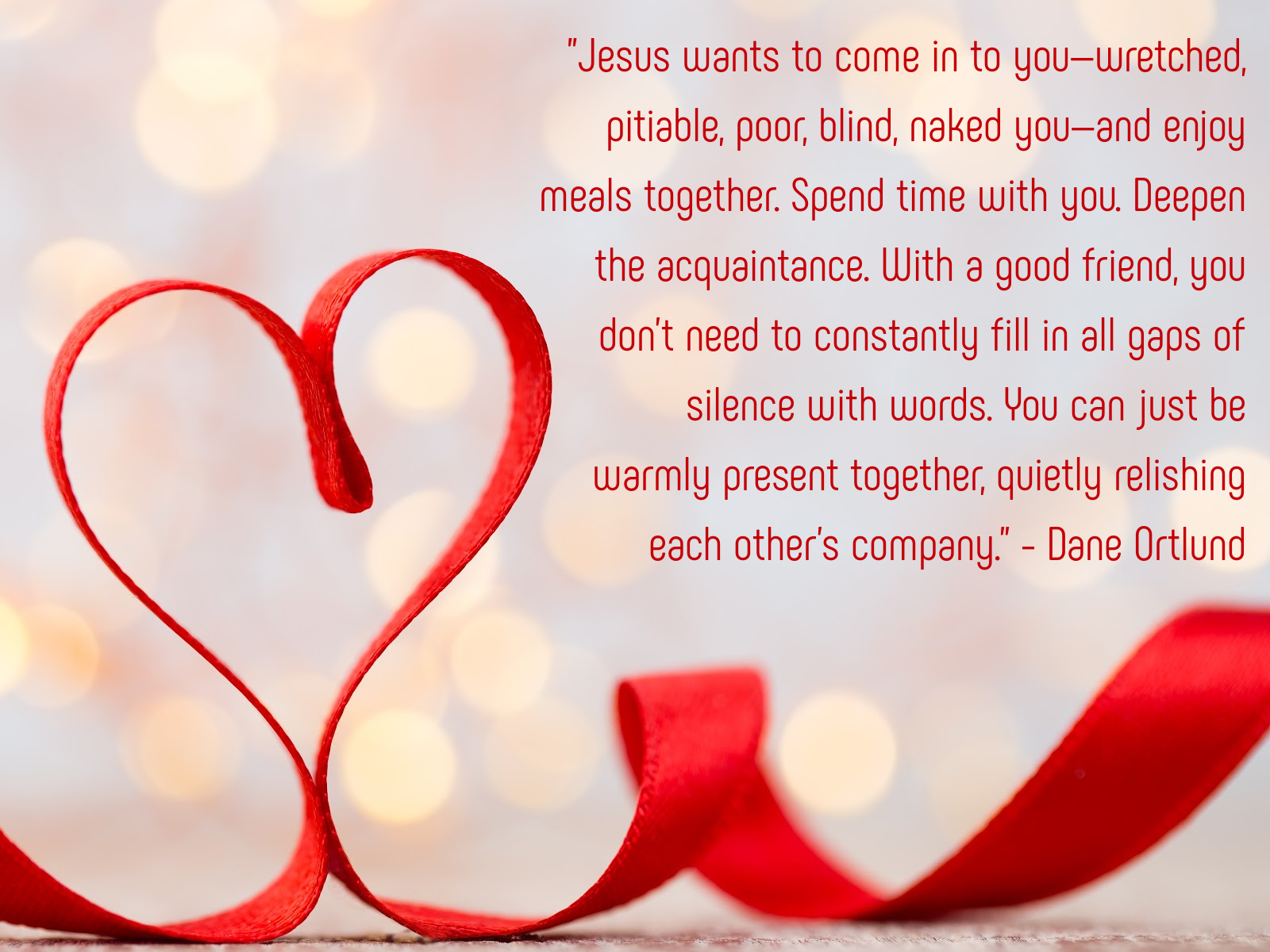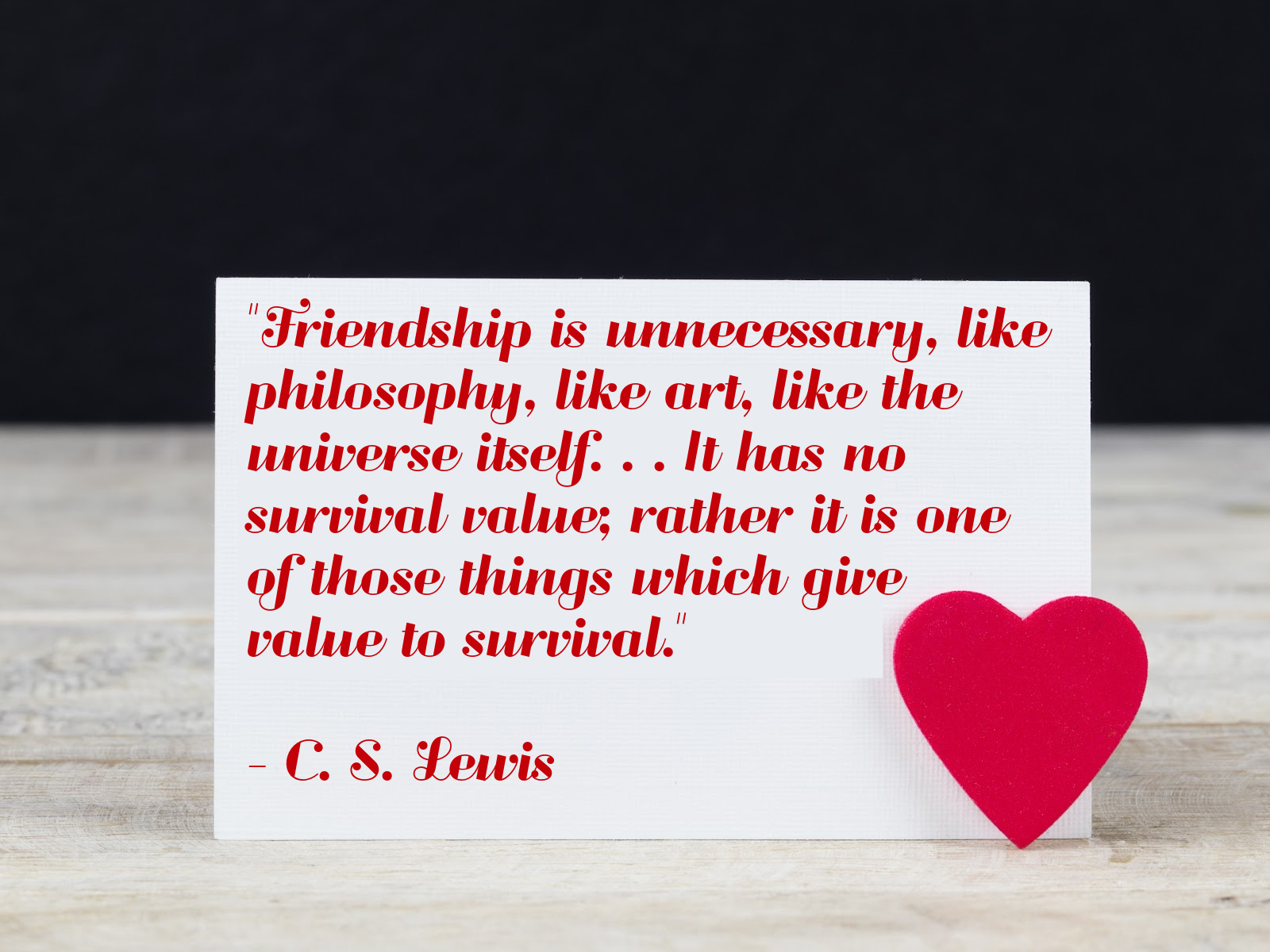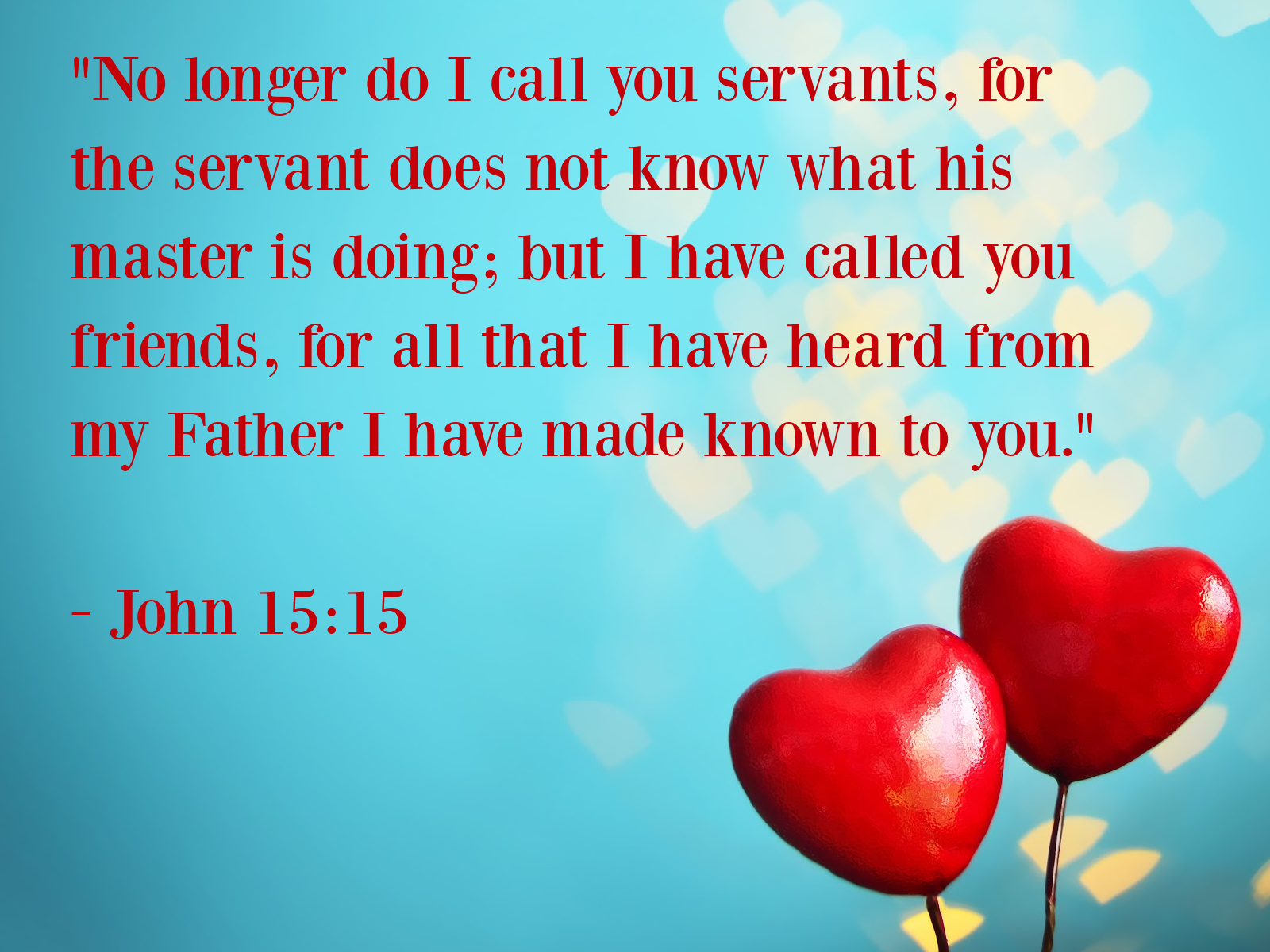I read Dane Ortlund’s Gentle and Lowly at the start of 2022. I was blown away, and no other nonfiction book I read in 2022 surpassed it as a favorite for the year. It was a book that got its hooks into me and wouldn’t let go, so I gave in to the lure and returned for a reread this January.
Once again, it was just the book my soul was craving at the time. After months of digging into apologetics and the more intellectual aspects of my faith (all great things!), I needed this gentle calling back to the softness of God in the personhood of Jesus and His welcoming heart. As so often happens with rereads, different aspects of the book stood out to me this time through, and the portion of the book that nestled its way into my heart and made its home was about Jesus as our friend.

I think it’s common for Christians to feel a special connection to one particular member of the trinity. Personally, I have always related most deeply to God the Father, likely because I have a close and comfortable relationship with my earthly father. I’ve felt welcomed and unconditionally loved by my Heavenly Father, secure in His affections and care for me. I have not had any trepidation in coming to the Father with my questions and emotions and requests, just as I would my earthly dad. Even as I marvel at the Father’s magnitude, I find Him approachable; though I want to honor and glorify Him, I am not burdened by a felt need to impress Him or present myself as something I am not.
I can accept the Father’s unconditional and abiding love for me as His child; it’s an inevitable affection I see modeled in the earthly parent/child dynamic, one I feel for my own children—I don’t doubt that God MUST love His sons and daughters, just as it would be impossible for me to stop loving Kali, Sully, and Charlie with every breath that is in me. But just because I love my children doesn’t mean I always delight in spending time with them; they are not always my first choice for an afternoon hang, and though I always love them, there are times I don’t like them very much.
I can sense that I have projected my attitude towards my kids onto God the Father’s feelings about me, and there’s a strange security there in believing He doesn’t need to like me all the time but will love me just the same. (I’m not claiming this is accurate theology, this is simply an explanation of my mind and posturing with God the Father.)
For me (though I may be an outlier with this), Jesus has felt a little less approachable. Counterintuitively, the very humanity of Jesus brings out all of my own insecurities and vulnerabilities: the implied distance between myself and the Father (child and parent) provides a cushion of safety, but the peer-to-peer dynamic we find with the personhood of Jesus is disarming. In taking on flesh, Jesus was extending His hand in friendship, and it’s a relationship for which I feel utterly under-qualified. He’s the popular kid on campus, and I am just not cool enough or good enough to sit at His table. Who am I that the Savior of the world would choose friendship with me in all of my brokenness and complete unsuitability for a spot in His in-crowd?

In the same way that my easy relationship with my dad, and with my kids, has informed my connection to God the Father, my complicated friendship experiences have led me to distrust the friendship of Jesus. In his book The Four Loves (an absolute must-read, by the way), C.S. Lewis observes that friendship is the “least natural of loves; the least instinctive, organic, biological, gregarious, and necessary.” I certainly feel this: friendship does not come naturally to me. I have frequently felt lonely, misunderstood, forgotten by and different from my peers, and I carry the weight of this into my friendship with Jesus. I worry that our relationship will remain tepid and superficial. Or worse, that our friendship will blossom into something rich and deep, but that as He gets to know me—the real me—He will grow disillusioned and begin to distance Himself. I am hesitant in pursuing intimacy with Jesus because He “should” get me and may not, and I don’t know that my heart can bear the weight of that disappointment.
By definition, friendship implies a level of mutuality and companionship for which I know I am not worthy. (And that’s not just false humility, if we’re honest NONE of us is deserving of friendship with Jesus.) Amazingly(!), Jesus knows that I am not worthy of His friendship. And He chose me anyway! Ortlund reminds us that, “here is the promise of the gospel and the message of the whole Bible: In Jesus Christ, we are given a friend who will always enjoy rather than refuse our presence. This is a companion whose embrace of us does not strengthen or weaken depending on how clean or unclean, how attractive or revolting, how faithful or fickle, we presently are. The friendliness of his heart for us subjectively is as fixed and stable as is the declaration of his justification of us objectively.” Jesus knows my proclivity towards fair-weather companionship, yet He extends His hand of unequivocal friendship all the same. He has called me His friend, and His calling is what makes me worthy of the invitation.
Tomorrow is Valentine’s Day, that day (Hallmark holiday or otherwise) reserved for celebrating love in all of its forms. Friendship may not be the first “love” that comes to mind every February 14, but this year I’m feeling especially appreciative of the friend-love I share with my good friend Jesus.
